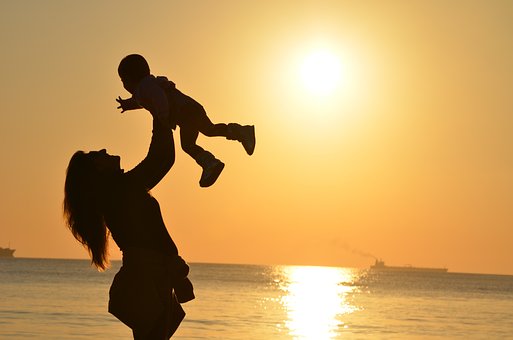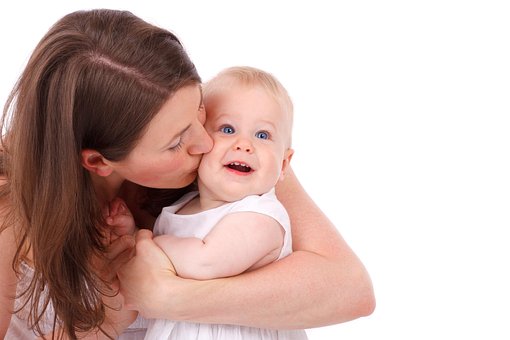When you become a parent, you receive dozens and dozens of recommendations about caring for your baby. Between the books and the advice of our loved ones, it is sometimes difficult to navigate. Here are ten things you should avoid.
 |
| pixabay |
1. Use cotton swabs
It is strongly discouraged to use cotton swabs to clean baby's ears. By introducing the cotton swab too deeply, you can damage the eardrum. In addition, you may push earwax into the ear canal and create a plug. Use a damp washcloth instead, and gently wipe the ear.
2. Pillows, blankets, bumper and soft toys in the cradle
To avoid any risk of asphyxiation, it is recommended to put nothing in the crib. The items listed earlier may wrap your baby's face as he sleeps, and he may choke on it. Before a certain age, children do not have the reflex or the strength to turn around if an object prevents them from breathing.
 |
| pixabay |
3. The sunscreen before 6 months
Due to the fragility of baby's skin, the Canadian Pediatric Society advises against the use of sunscreen before 6 months of age. Indeed, before this age, the epidermis is not yet fully formed, and anti-UV components may cross its barriers and cause allergies. It is advisable not to expose the baby to the sun, and to dress in protective clothing.
4. Let baby sleep in the car seat
The Canadian Pediatric Society strongly advises against letting baby sleep in a shell. As the infant is unable to support his head alone, he tends to drop it, which blocks oxygen entry and can cause asphyxiation. Use your shell only when traveling by car. If you ever have to take a long drive, it is suggested to take breaks every hour in order to get the baby out of the seat and stretch his body.
 |
| pixabay |
5. Honey
Do not give honey to a baby before the age of one. Indeed, honey can contain spores of a bacterium, Clostridium botulinum. Safe for a healthy adult, spores can develop in the baby's gut and cause infant botulism, a rare but deadly disease.
6. Walkers
According to health experts, walkers are not only dangerous because of the risk of falling, but the use of such an object does not promote the strengthening of the tone of babies. Indeed, his legs and back are not yet strong enough to support all his weight, which can cause long-term posture problems. In Canada, the trotter has been banned since 2004. "Jolly Jumper" type exercises are also to be banned.
 |
| pixabay |
7. Scented care products
The sensitive baby skin should be washed with unscented and non-alcoholic products. Scented products contain chemicals, detergents, and additives that may irritate baby's skin. Ideally, opt for natural and organic products.
8. Delay the introduction of allergenic foods
According to the latest recommendations issued by Health Canada, it is advisable not to wait too long before introducing potentially allergenic foods to the baby menu. Delaying their introduction could encourage, on the contrary, the development of allergies. In fact, the Canadian Pediatric Society believes that the hasty introduction of these foods would be beneficial and protect the immune system. It is now strongly encouraged to offer baby, from the age of 6 months, products such as seafood, whole eggs and peanuts.
 |
| pixabay |
9. Give syrup for coughs and colds
Health Canada advises against giving cough and cold syrup to children under 6 years of age. In addition to not having proven efficacy in small children, they can cause significant side effects such as tachycardia, an increase in heart rate. Remember that in order to heal quickly, your child needs rest and hydration.
10. Let baby fall asleep while drinking a bottle of milk
Letting baby fall asleep with a bottle of milk promotes the destruction of dental enamel and the development of cavities. Normally, the production of saliva can neutralize this acidity, but during sleep, it decreases and does not do its natural job well. It is in these conditions that cavities are formed. It is therefore advisable to brush baby's teeth before bedtime with a small soft brush and water. From one year old, it can be done with a toothpaste suitable for children.
Read also:
The baby bath: some tips to give your baby a good bath
sources: http://www.canalvie.com





Commentaires
Enregistrer un commentaire